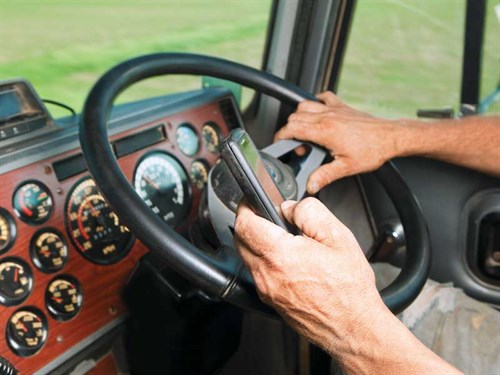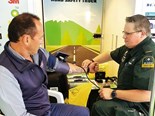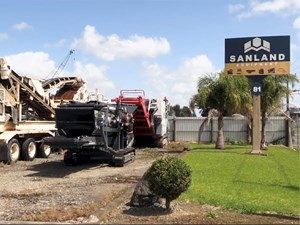Comment: Road safety tips from NZTA
NZTA offers handy road safety tips to stay focused while driving
Latest statistics available for 2016 show that distracted driving was a contributing factor in 1097 vehicle crashes, of which 17 were fatal crashes, 172 were serious injury crashes, and 908 were minor injury crashes.

The total social cost of these crashes was $333 million. Driving a vehicle on the road requires many important skills, the most important of which is your full attention so that you can safely react to the environment around you. There are three main types of distractions:
- Visual: Taking your eyes off the road
- Manual: Taking your hands off the steering wheel
- Cognitive: Not keeping your mind on the road
Many safety experts believe that driver distraction is one of the most important road safety issues in the country and the cause of a significant number of road accidents.
It is believed that a distracted driver is as dangerous on the road as a drunk driver. So, what are the main causes of distracted driving?
Mobile phones
This is one of the most dangerous distractions a driver can have. It was bad enough when mobile phones were limited to making and answering calls, but with today’s technology, many are not only texting as they drive but are also reading and replying to their e-mails or updating their Facebook page.
If you must use a mobile phone in your vehicle, install a hands-free kit and get into the habit of only answering calls; better still, pull off the road to answer calls and e-mails. It is better to arrive a few minutes late than to not arrive at all.
Business owners should consider implementing mandatory policies around mobile phone use and include this in all employment contracts.
Fatigue
Are you getting enough sleep, or are you drinking alcohol the night before a long day behind the wheel? If you are working up to 14 hours a day, then you need to get seven to eight hours quality sleep each night. If you suffer from sleep apnoea, then seek professional help. One suggestion is to have a hot shower just before bed and then hop into a cold bed. This will aid your body to drop in temperature, which helps you to get quality sleep.
If you know you are driving the next day, then limit the amount of alcohol you consume. Restrict your intake to below the legal limit, as excess alcohol can take 10 hours or more to leave your system. Don’t be fooled by the type of alcohol either.
Whether it’s beer, wine, or spirits, they all contain the same quantity of alcohol. Remember a drink is a drink is a drink; it doesn’t make any difference when it comes to impairing your ability to drive safely.
Eating or drinking
When you’re busy eating or drinking while driving, there’s one less hand on the steering wheel. A hot pie or a coffee dribbling down your chin is a sure-fire distraction. Eat before you get behind the wheel, eat healthy, and allow yourself enough time so you don’t get indigestion.
Focus on the job
Driving, especially long distance, allows you plenty of time to think, but you don’t want to be driving in autopilot mode, as this does not give you time to react quickly enough if the situation changes from the expected.
How many times have you been driving down the road and missed the turnoff that you were supposed to make just because you weren’t concentrating on the road ahead of you? Would you feel safe knowing the person driving towards you was on autopilot?
Keep your eyes on the road
Don’t be a rubbernecker. If you see an accident on the side of the road or a vehicle stopped by the police and the authorities have it under control, then keep your eyes on the road; they don’t need you causing another accident.
If you are planning to pull over, indicate well in advance and check your mirrors to make sure the vehicle behind is not following too close. Equally, don’t tailgate the vehicle in front.
Modern devices
There are many devices in modern vehicles to distract the driver. Back then, it used to be just the radio and now, it’s USB sticks, Spotify, mobile phones, chargers, GPS navigation, air conditioning, electric mirrors, etc.
Make all your adjustments before you hit the road: adjust your seat and mirrors, set the air conditioning to auto, programme the GPS, and if you like to listen to music, load the playlist before you start driving so that you are not distracted. Don’t listen to your music with headphones on, as you will not be able to hear what is going on around you.
Passengers
Whether it is your children, your mates, or the family dog, all can be dangerous distractions while you are driving. Just ask a school bus driver or taxi driver how distracting passengers can be. If you have children on board, make sure they are correctly restrained in an approved child restraint. While you are at it, make sure you are buckled in as we need you to be in control of the vehicle at all times.
If on a long trip, make sure you have regular stops to break up the trip. Don’t let the family pet sit on your knee or travel unrestrained.
Multitasking
Multitasking means you are not focussing on the most important task—concentrating on the road ahead. Remember, if you drop something, leave it on the floor until you can safely pull over; don’t reach down to pick it up and in doing so take your eye off the road.
Distracted drivers are responsible for a significant number of road accidents each year, many resulting in serious injury or death and most are preventable. Remember the safe driving rules:
- Stay focussed
- Pay attention
- Expect the unexpected
NZ Trucking Association promotes safe driving. In 2017, the association launched the Safety MAN Road Safety Truck initiative, which delivers programmes to the trucking industry, schools, and the community.
The initiative has been designed to raise awareness on safety around big trucks and on common health and social issues that contribute to fatigue—a major factor in many truck crashes. Further information is available at roadsafetytruck.co.nz.
If you would like to talk to NZ Trucking Association, we can be contacted on 0800 338 338 or info@nztruckinassn.co.nz.
Keep up to date in the industry by signing up to Deals on Wheels' free newsletter or liking us on Facebook.




.jpg)


.jpg)









